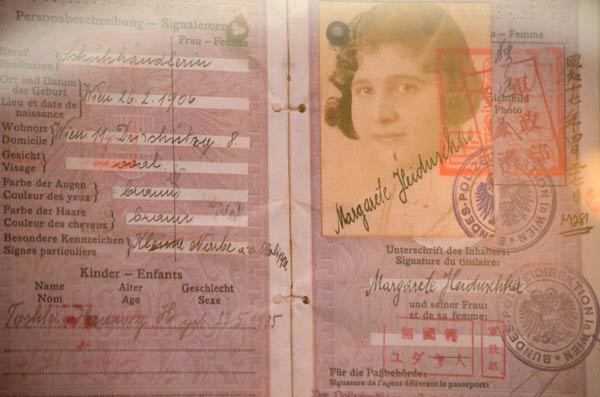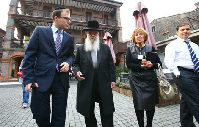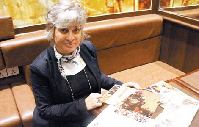Ho Feng-shan honored in California
 |
|
Provided to China Daily |
Many Austrian Jews tried to emigrate, but found almost no country willing to allow them entry. Their plight was further exacerbated by the July 13, 1938 resolution of the Evian Conference, which made it evident that nearly none of the 32 participating nations was willing to accept Jewish refugees.
Having been turned down by other foreign consulates, the Jews came to the Chinese consulate, which issued visas to Shanghai. Occupied by the Japanese in 1937, Shanghai had no passport control and thus required no documents for entry. Ho's intent in issuing visas to Shanghai was to provide Jewish refugees with proof of emigration so that they would be allowed to leave Austria.
By issuing visas to Shanghai as a "destination", Ho placed the Chinese port city on the map as a place of last resort for Jewish refugees, and some 18,000 European Jews escaped to the city in 1938 and 1939.
Ho Manli says her father used to say he knew that: "The visas to Shanghai were in name only. In reality, it was a means for Austrian Jews to find a way to get to the US, England, or other preferred destinations".
"I thought it only natural to feel compassion and to want to help. From the standpoint of humanity, this is the way it should be," Ho told his daughter.
John Perez, speaker of the California State Assembly, spoke at the symposium, saying that Ho Feng-shan "saw some of the darkest chapters of human history, here is a story that speaks to all lives hoping for a better world".
Describing Ho as a "brave soul" to stand up, he says the descendants of every person saved by Ho should have the belief that "any of us has the obligation and ability to make a difference" for justice and human dignity.
Yuan Nansheng, China's consul general in San Francisco today, says he is proud to be a Yiyang native because of Ho Feng-shan and his "humanitarian courage". Yiyang is a city in China's southern province Hunan.
























